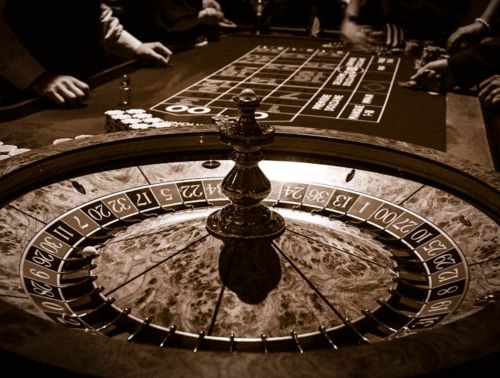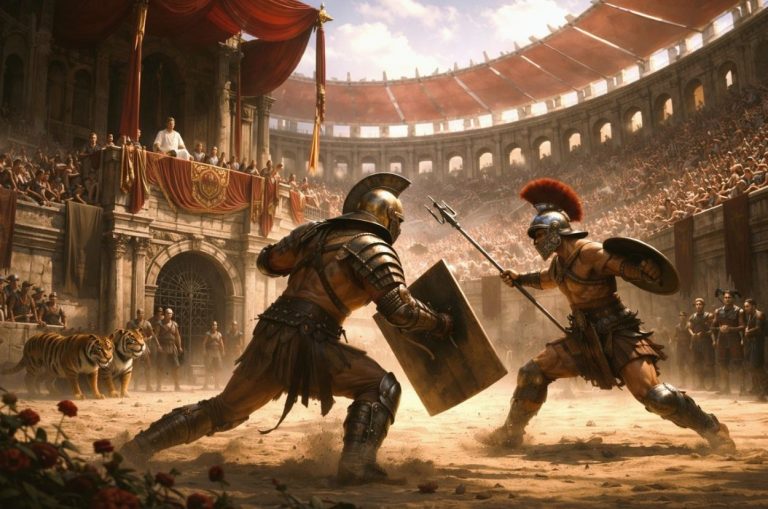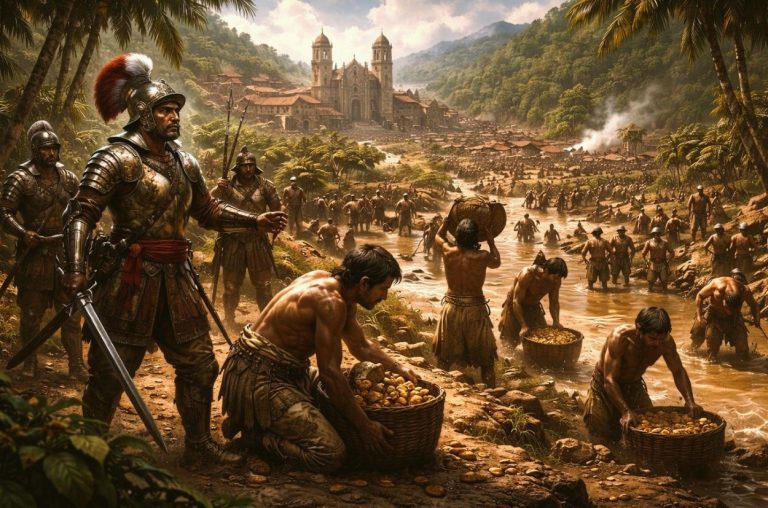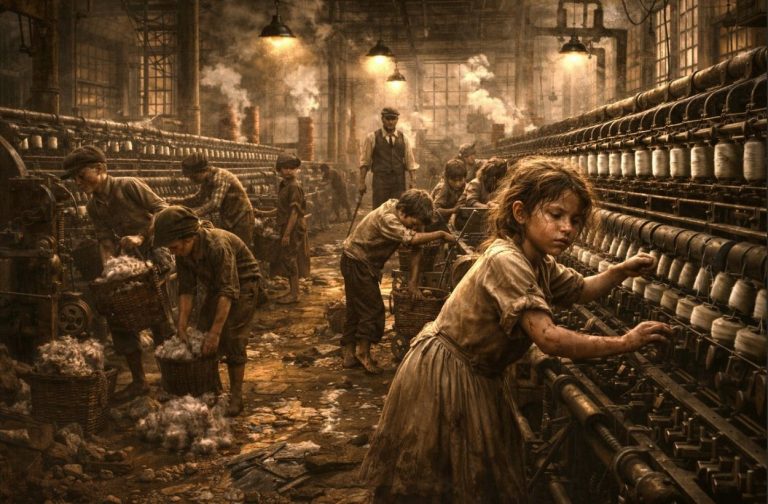

The world of gambling has captivated humanity for millennia, evolving from ancient dice games played in dusty marketplaces to the sophisticated digital platforms like the online casino CasinoLuck. The modern online casino industry represents the latest chapter in this long journey, reflecting human curiosity, risk-taking, and the desire for fortune. From Mesopotamian dice to the neon lights of Las Vegas, the history of casino games reveals much about culture, chance, and entertainment across the ages.
Gambling in the Ancient World
Long before formal gaming houses or online casino games, early civilizations were already rolling dice and placing bets. Archaeological evidence shows gambling was woven into daily life, not just for entertainment but for ritual and decision-making. Early gambling history reveals how ancient peoples viewed luck and destiny as reflections of divine will.
Dice and Chance in Mesopotamia and Ancient China
The first known dice, discovered in Mesopotamia around 3000 BCE, were carved from bone and used for both divination and gaming. These simple tools evolved into gaming implements central to the history of gambling.
In ancient China, gambling took the form of lottery-style games during the Han Dynasty (206 BCE–220 CE). The Chinese also invented playing cards in the 9th century CE, a breakthrough that later shaped European gambling traditions. Keno, one of the earliest casino online games, reportedly helped fund the construction of the Great Wall of China, illustrating how gambling history is intertwined with state projects.
Betting in Ancient Rome and Greece
Both Roman and Greek societies were deeply passionate about gambling, despite frequent bans. Romans bet on gladiatorial contests and played dice games so obsessively that laws restricted them outside festival seasons. Emperors like Augustus and Nero were avid gamblers, and the game “alea” became a pastime for all classes.
The Greeks, too, wagered on athletic competitions, creating one of the earliest examples of sports gambling history. These ancient habits underscore how competition and betting have been inextricably linked for centuries, long before the advent of modern bookmakers or casino odds.
Cultural Attitudes Toward Gambling in Early Civilisations
Ancient attitudes toward gambling were complex. Many viewed it as harmless fun or a means to divine fate, while others condemned it as a moral weakness. Egyptian pharaohs, Roman citizens, and even Hindu scholars acknowledged the dangers and appeal of gambling. Despite attempts at regulation, enforcement was nearly impossible. These early debates about morality and law echo in modern arguments over online casino access and responsible gaming, continuing the long history of gambling.
The Medieval and Renaissance Era of Gambling
The Middle Ages brought new games and the spread of playing cards through trade and travel. This period marked a shift from informal betting to structured, regulated play — a pivotal time in the history of casinosthat laid the groundwork for modern gaming establishments.
Playing Cards and Their Spread Through Europe
Introduced to Europe from the Islamic world in the 14th century, playing cards quickly spread through Spain and Italy, evolving into regional styles. The French standardized the suits — hearts, diamonds, clubs, and spades — that remain iconic today.
By the 15th century, card games had become popular among both nobles and commoners. Early games such as primero (a poker ancestor) and trick-taking games became staples of European gambling. This innovation helped shape the development of casino games centuries later.
Gambling Houses and Early Lotteries
As European societies grew wealthier, cities like Venice and Augsburg saw the emergence of early gambling houses, controlled environments that prefigured modern casinos. Governments realized the revenue potential of organized gaming, launching public lotteries to fund civic projects. The first recorded European lottery took place in Bruges in 1441. This era established the model of state-supervised gambling that continues today in both land-based and online casino regulation.
Regulation and Morality Debates in the Middle Ages
Medieval rulers faced the same dilemmas as regulators today, balancing profit with public concern. The Catholic Church often condemned gambling, yet clergy and nobles still played. Some kingdoms taxed betting houses to raise funds while restricting commoners’ participation. These early struggles over control and morality became enduring themes in gambling history, shaping modern debates on accessibility, addiction, and government oversight.
The Birth of Modern Casinos in Europe
The 17th and 18th centuries witnessed the evolution of gambling into a refined social pastime. The concept of the casino — part entertainment venue, part luxury club — was born. These early institutions set the blueprint for both elegant gambling halls and today’s sleek casino online platforms.
Venice’s Ridotto – The First True Casino (1638)
Opened in 1638, the Ridotto in Venice is widely regarded as the world’s first formal casino. Located in the Palazzo Dandolo, it offered regulated games like biribi and basetta during Carnival. Run under government supervision, it represented a new balance between indulgence and order. Although it closed in 1774 due to pressure from moral reformers, the Ridotto’s legacy endures in both physical and live casino games today.
The Rise of Monte Carlo and 19th-Century Glamour
When the Casino de Monte Carlo opened in 1863, it redefined gambling as luxury entertainment. Commissioned by Prince Charles III of Monaco, the casino’s grandeur and innovation — including the introduction of French roulette — attracted Europe’s elite. Monte Carlo’s model of elegance and regulation became a cornerstone of casino history, influencing global resorts and the design of premium online casino games.
Casino Culture in Victorian Britain
In 19th-century Britain, gambling thrived despite official restrictions. Exclusive clubs like Crockford’s offered high-stakes gaming for aristocrats, while racecourse betting flourished among the masses. This class divide influenced later UK gambling laws and shaped the ethos of today’s casino online market, where both casual and high-roller experiences coexist. The British legacy remains central to the history of sports gambling and the cultural acceptance of wagering as entertainment.
The Expansion of Casinos in the United States
America’s gambling culture developed through frontier enterprise and innovation, producing iconic traditions that continue to shape online casino design and marketing worldwide.
Riverboats, Frontier Saloons, and the Wild West
In the 19th century, riverboat casinos along the Mississippi and frontier saloons brought gambling to miners, traders, and travelers. Poker, faro, and roulette became symbols of the American frontier spirit. Professional gamblers — both revered and reviled — defined this era. Poker, in particular, emerged as the quintessential American game, later becoming a centrepiece of casino online games and televised tournaments.
Las Vegas: The Casino Capital of the World
Legalized gambling in Nevada (1931) transformed Las Vegas from a desert stop into a glittering empire of chance. Mob investments built grand casino-hotels like the Flamingo and Sands, later replaced by corporate mega-resorts such as The Mirage and Bellagio. Las Vegas became the global gambling capital, shaping the branding and aesthetics of online casino games and the entire history of online gambling.
Atlantic City and the Rise of Resort Casinos
In 1976, New Jersey legalized casino gambling to revive Atlantic City. Resorts International opened in 1978, ushering in a new era of East Coast entertainment. The city’s resort-style model, emphasizing shopping, dining, and conventions, influenced global casino design and regulation. Its stringent licensing system became a template for state-controlled casino online oversight in the United States.
Iconic Casino Games in American Gambling
American casinos popularized games that now dominate online casino games libraries:
- Poker: From saloon pastime to global phenomenon, especially Texas Hold’em, now central to casino online tournaments.
- Blackjack: A balance of luck and skill, consistently among the most played casino games online.
- Craps: Fast-paced dice excitement, adapted into digital formats and live casino games.
- Slots: Evolving from mechanical reels to complex video systems, slots remain the backbone of both land-based and online casino revenue.
Casino Online Revolution: From the 1990s to Today
The digital age has revolutionised gambling more profoundly than any invention since the invention of dice. The history of online gambling began in the mid-1990s and continues to reshape entertainment, technology, and law worldwide.
The First Online Casino Platforms
In 1994, Microgaming launched the first online casino, licensed under Antigua and Barbuda’s Free Trade & Processing Act. InterCasino followed in 1996, proving that digital gambling could be profitable and secure. Early platforms had limited graphics and slow internet speeds, but laid the groundwork for a $60+ billion global industry. These pioneering sites established the model for modern online casino platforms, featuring licensed software, robust player protection, and international oversight.
Mobile Casino and Live Casino Online Innovations
The smartphone boom of the 2010s transformed accessibility. Mobile-optimized sites and apps have made casino games accessible online from anywhere. Live dealer technology soon bridged the gap between virtual and real experiences, streaming professional dealers from studios in real time. Companies like Evolution Gaming revolutionised live casino games, offering roulette, blackjack, and game-show-style experiences that brought human interaction back to online casino play.
Comparing Traditional Casinos vs Online Casino Experiences
| Aspect | Traditional Casinos | Online Casino |
| Accessibility | Requires travel; limited by location and hours | 24/7 access from anywhere via the internet or mobile |
| Atmosphere | Energetic crowds, live shows, free drinks | Solitary or social via live casino games; |
| Variety | Limited by floor space | Thousands of casino online games, including exclusives |
| Safety Tools | Manual bankroll control | Built-in responsible gambling tools, deposit limits, and self-exclusion |
The Future of Gambling: Online Casino and Beyond
The gambling industry continues evolving with new technology and regulations. Virtual and augmented reality promise immersive 3D casino experiences, while blockchain ensures transparent and secure transactions. Artificial intelligence now powers personalized recommendations and early detection of risky behavior. Esports and skill-based gaming expand sports gambling, engaging new audiences. Global regulations increasingly emphasize player protection alongside innovation. The enduring appeal of gambling — a combination of thrill, chance, and human connection — has remained constant throughout casino history. The blend of live casino games, mobile access, and digital creativity ensures that the online casino world will continue to expand across generations.


